
hotline:
17715390137
Tel/Wechat:
18101240246 (Technology)
0512-68565571
Email:mxenes@163.com (Sales Engineer)bkxc.bonnie@gmail.com
Scan the code to follow or search the official account on WeChat:
2D Materials Fronrier After paying attention,
click on the lower right corner to contact us,
Enter enterprise WeChat.
Professional Services Online

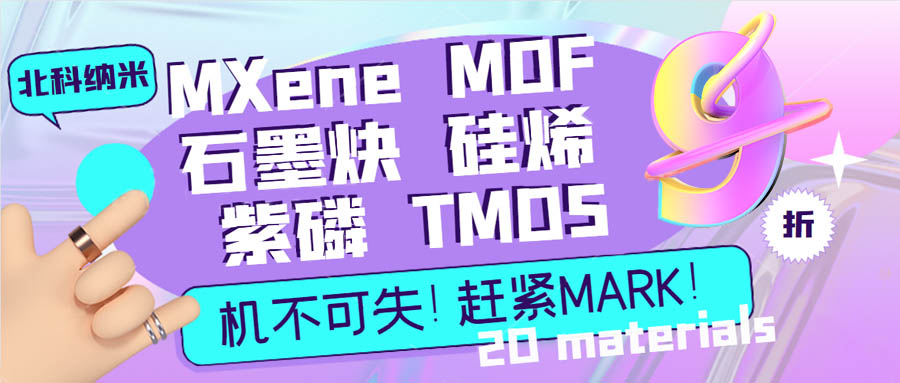
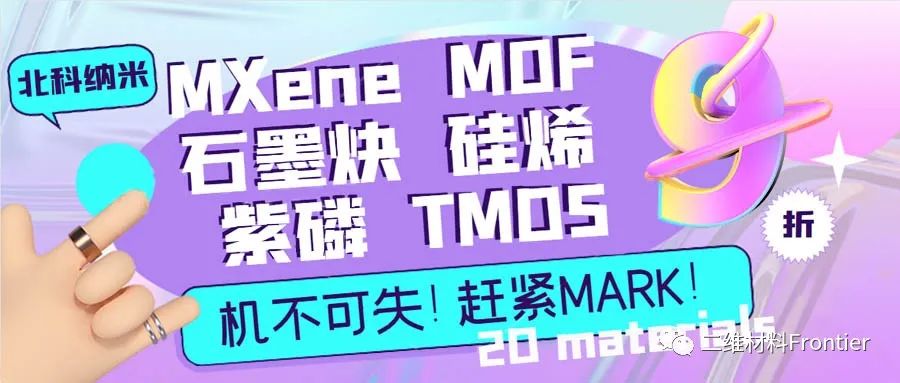 Picture MXene is a two-dimensional star material that is more popular than graphene. As an advanced MXene manufacturer, North Konami offers special offers, 10% off mxene and other materials, and North Konami launches new mesoporous material products, more discounts The price, waiting for you to spike!
Picture MXene is a two-dimensional star material that is more popular than graphene. As an advanced MXene manufacturer, North Konami offers special offers, 10% off mxene and other materials, and North Konami launches new mesoporous material products, more discounts The price, waiting for you to spike!
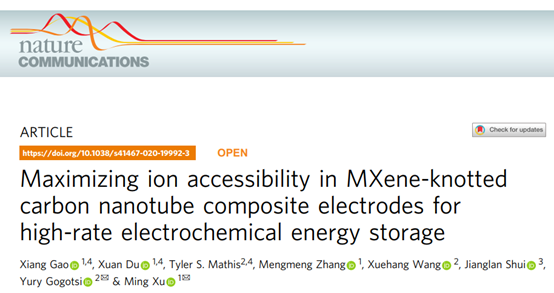

In capacitive energy storage devices, charge storage begins with the adsorption of electrolyte ions on the surface or active sites of electrode materials. The ionically accessible portion of the electrode surface contributes to the storage of electric charges. Therefore, ion accessibility can affect the capacitance or capacity of the energy storage device. This effect is more pronounced at high rates or low temperatures, especially when organic electrolytes are used.
There are two main directions for improving ion accessibility in organic electrolytes: modification of electrolyte and electrode structure. Improvements in the electrode structure itself to improve ion accessibility include the introduction of porosity through chemical etching on the electrode material surface, the increase of interlayer spacing through surface chemical modification, or the organization of 2D material re-stacking through “pillar” material intercalation. Although these methods can improve the interlayer spacing of 2D electrode materials (such as MXene), the stacking problem of 2D layers in the vertical direction still exists. Therefore, the transport of ions in the electrode material will be very slow in the normal direction, which also becomes a major obstacle in high-rate and low-temperature operation.

Recently, Professor Ming Xu of Huazhong University of Science and Technology and Professor Yury Gogotsi of Drexel University published a research paper on the internationally renowned academic journal Nature Communication entitled: Maximizing ion accessibility in MXene-knotted carbon nanotube composite electrodes for high-rate electrochemical energy , reported a novel MXene-carbon nanotube (CNT) composite electrode with maximized ion accessibility and outstanding rate capability at low temperature.


Figure 1. Design of junction-like MXene-CNT composite electrodes for efficient ion transport
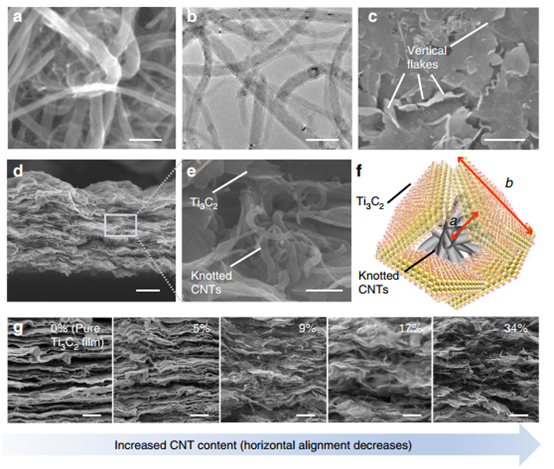
Figure 2. Characterization of junction-like CNTs and MXene-CNT composite electrodes.

Figure 3. Electrochemical performance analysis of the junction-like MXene-CNT composite electrode in an organic mixed electrolyte. (EMIM:Li-TFSI=1:1)
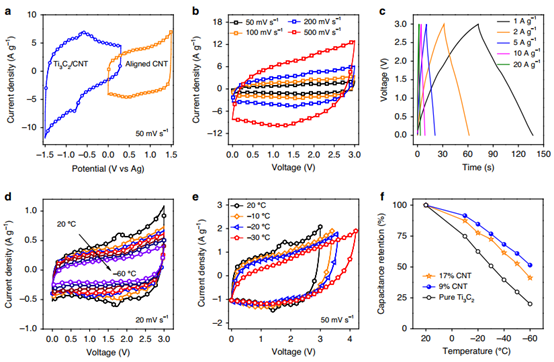
Figure 4. Electrochemical performance testing of asymmetric devices.

In organic electrolytes, the structure of the electrode material can affect the rate capability of the material. The as-prepared multi-node CNTs and MXene-CNTs composite electrodes exhibit high capacity retention in mixed organic electrolytes, which can retain 56 % capacitance. The large-scale junction-like structure in multi-noded CNTs is crucial to disrupt the alignment of Ti3C2 sheets, which in turn leads to lower tortuosity of ion transport paths and enhanced ion accessibility. This improves the performance of Ti3C2 MXene-based supercapacitors at low temperature, and can have a higher capacitance retention rate of about 55% when the operating temperature is reduced from 20 °C to -60 °C. This work demonstrates that pseudocapacitive materials can be used for high-rate energy storage in organic electrolytes after their structures are optimally designed.
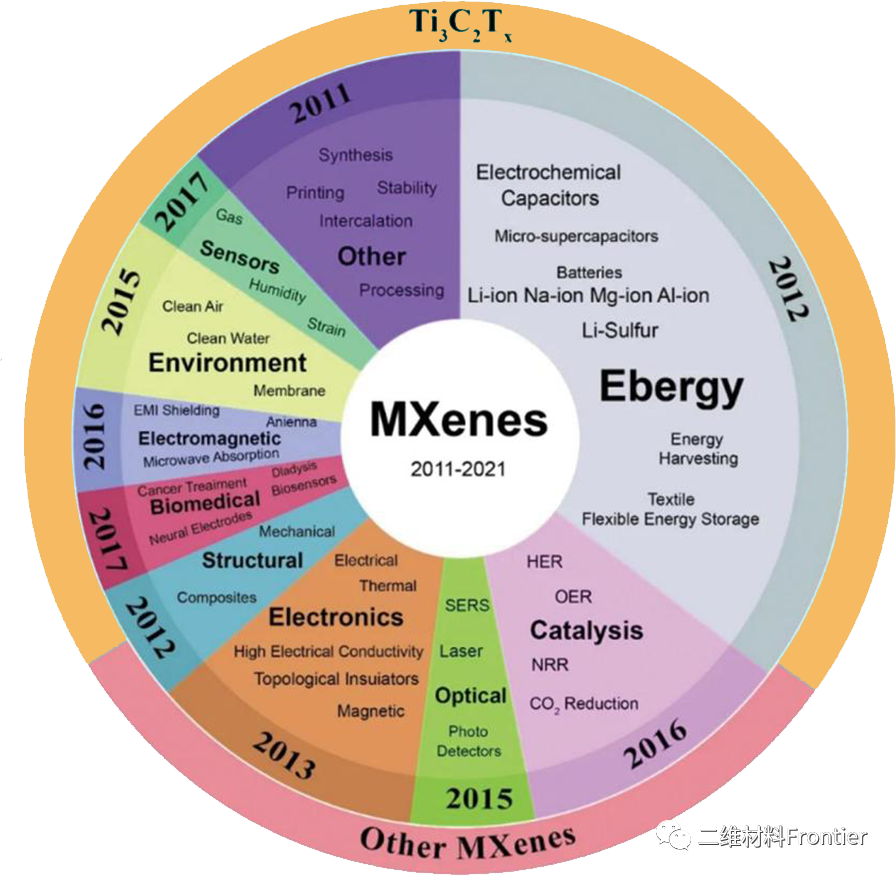


| Reminder: Beijing Beike New Material Technology Co., Ltd. supplies products only for scientific research, not for humans |
| All rights reserved © 2019 beijing beike new material Technology Co., Ltd 京ICP备16054715-2号 |